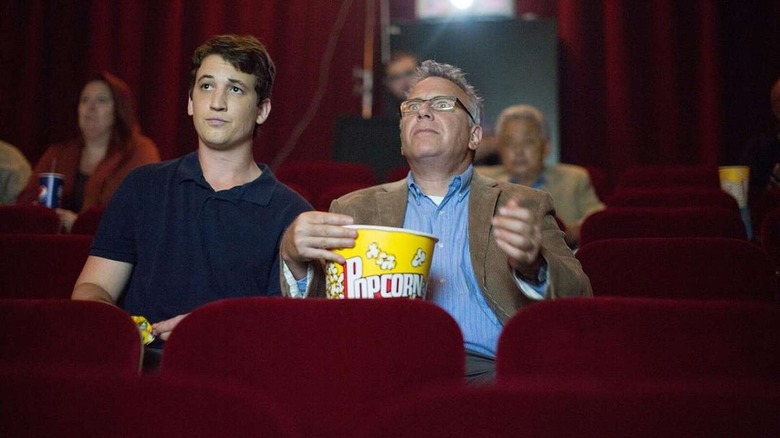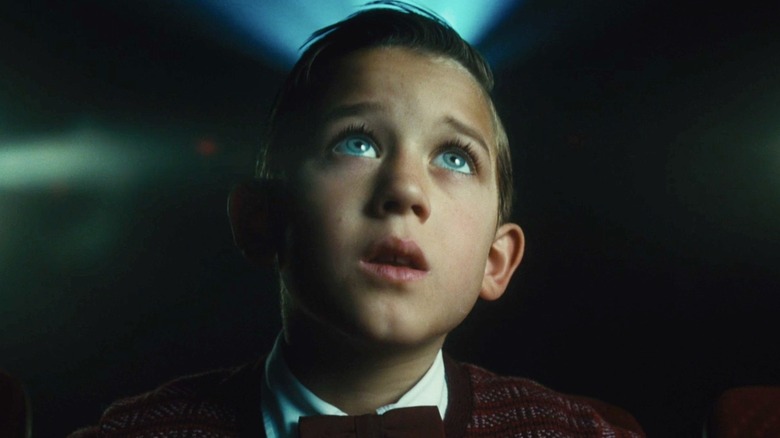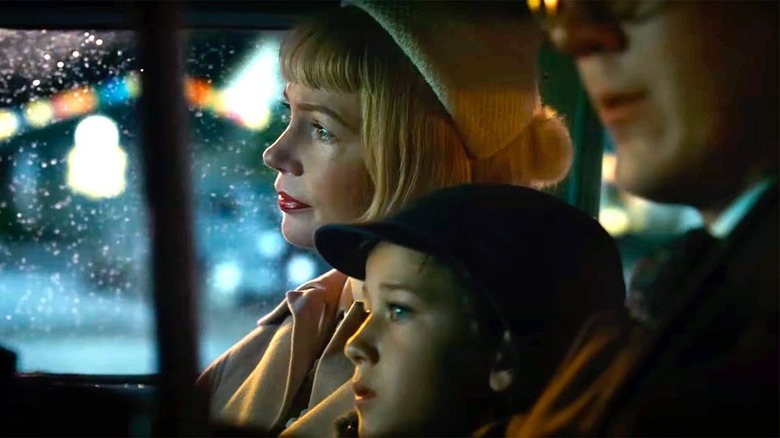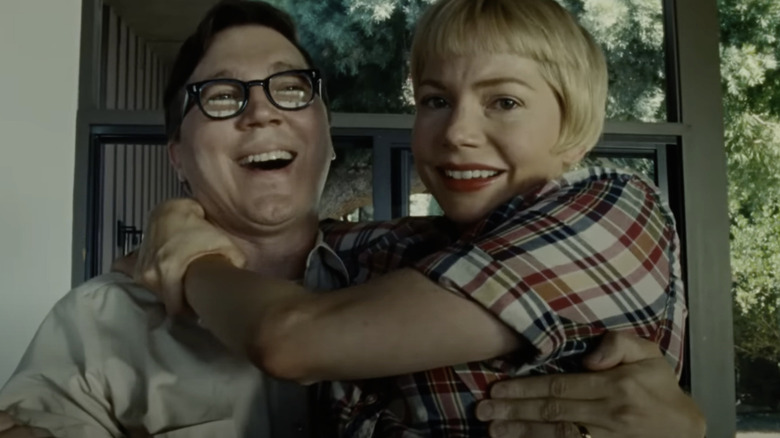Steven Spielberg Is Wrong About Theaters Versus Streaming
My earliest memory is of going to see "Star Wars" in the summer of 1977 with my mom and my older brother. I was three years old, so it's mostly a vaguely sensed recollection (for good reason, given that I slept through the bulk of the movie until the trench run), but one moment stands out with startling clarity: when the lights went down, I screamed.
This was back when movie theaters actually went dark. No dimmed house lights lining the walls, no light strips to guide you up and down the aisle (save possibly for faded glow tape that hadn't been replaced in years). It was pitch black in that theater for a second or two until the tattered bumper preceding the coming attractions flickered across the screen. I remember that, too. I remember feeling saved.
I've been chasing that sensation ever since, often to the annoyance of my moviegoing companions. For me, the ritual of going to the movies was as important as watching the movie itself. In the days before reserved seating, I insisted on getting to the theater well ahead of time so I could sit in my preferred spot (just right to the center of the middle-front row) and catch the trailers. Eventually, my fervent desire to see everything on my own terms led to solo trips to the theater. When I saw a movie that blew me away, I'd book a return trip with a friend so I could feed off the rush of their first viewing — because it doesn't get much better than sharing a great film with a friend (30 years after its release, I'm still introducing people to Michael Ritchie's "Diggstown").
The steady decline of theatrical exhibition
As a cinephile, moving from small-town Ohio to New York City was like taking up residence in an amusement park 24/7. My options were endless. First-run movies, limited release indies, foreign films, repertory screenings of movies I'd always wanted to see on the big screen (or maybe hadn't seen at all). Three-film days over the weekend were the norm. My five years in New York City were basically one long movie marathon.
My 15 years in Los Angeles were roughly the same, though I soured on moviegoing around the time I quit Ain't It Cool News in 2015, mostly due to burnout. I didn't get back in the habit until I moved to Salt Lake City in 2017, where I noticed troubling trends in theatrical exhibition had become the industry standard. The houselights went down maybe three-quarters, films were improperly masked and many of the digitally shot movies were lit so dimly that, in a non-darkened theater, you couldn't always make out what was happening on the screen. Factor in the now accepted practice of texting through the movie (and recording moments to share later on social media), and it became clear to me that the communal experience of enjoying a movie had now become a solipsistic exercise in bearing witness to an ephemeral public event — something to be consumed and posted and memory-holed down the timeline.
More often than not, going to the movies became a drag. So after the pandemic, unless it was a big-screen release from a major filmmaker (e.g. Jordan Peele's "Nope," Paul Thomas Anderson's "Licorice Pizza" or Joseph Kosinski's "Top Gun: Maverick"), I stopped going.
Spielberg believes the movies will come back
There isn't a more stalwart champion of the movie theater experience than Steven Spielberg. Every time he composes a shot, he's thinking not only about how it'll play on a big screen, but how it'll land emotionally in a packed house of moviegoers. He is, by his own admission in a recent interview with The New York Times' A.O. Scott, part Cecil B. DeMille showman and part John Ford craftsman; ergo, the notion of people watching his latest film, "The Fablemans," via streaming is galling to him.
Post-pandemic, Spielberg is optimistic that theatrical exhibition will rebound. When Scott wondered if people were re-prioritizing what kinds of movies to see in theaters, Spielberg responded thusly:
"The industry is trying to figure that out right now. I found it encouraging that "Elvis" broke $100 million at the domestic box office. A lot of older people went to see that film, and that gave me hope that people were starting to come back to the movies as the pandemic becomes an endemic. I think movies are going to come back. I really do.
Certainly, there's no question that the big sequels and movies from Marvel and DC and Pixar and some of the animated movies and horror films still have a place in society. And hopefully comedies come back, because you can't laugh as hard at home as you can in an audience."
I want to believe. I really do. But I'd also like to take Mr. Spielberg to a movie at one of the multiplexes here in Salt Lake City, so he can see how crabby people get over the short-staffed concession stands manned by woefully underpaid employees. Then we'll sit in a half-darkened theater where people take in maybe a quarter of the movie while scrolling through Twitter on their phones. (This doesn't mean they don't know what's going on storywise. My nephew is a Zoomer, and he can process a plot while texting incessantly with his buddies.) And then, as we exit, we'll observe aghast the mess left by thoughtless jerks for those woefully underpaid employees to mop up before the next audience shuffles in to repeat the same sorry spectacle.
Streaming is, sadly, the surest way to do justice to a filmmaker's vision
Spielberg tells Scott how much he enjoyed watching "The Fabelmans" with an audience of 2,000 at the 2022 Toronto Film Festival. He was especially moved by their response to the comedic moments (which, if he's into that, he should watch the theatrical cut of "1941" with me; perhaps then he'll understand its anarchic greatness). But that was an ideal setting. People knew Spielberg was in the house, so everyone was on their best behavior. Check out a Tuesday matinee of "The Fabelmans" at the Larry H. Miller Gateway multiplex in Salt Lake City, and I guarantee he'll be barking about the presentation to the one of three employees working concessions and tearing ticket stubs (who, through no fault of their own, don't know the first thing about projection).
I understand exhibitors are in a tough spot post-pandemic, but these conditions were rampant long before our societal shutdown. I also realize that there were lousy audiences prior to the advent of the smartphone. But the engagement is different. It's muted. The film is one of several things on the minds of today's moviegoers. So if I want to get worked over by a great new horror movie like "Barbarian," or laugh my tuchus off as "Bros," I'm going to give these films their best shot by watching them at home, in a properly darkened room, via streaming. And this never ceases to break the heart of the kid who screamed at "Star Wars," pretended not to cry during "E.T. the Extra-Terrestrial" and jumped out of his seat cheering when a seemingly brainwashed Indiana Jones told Short Round he was okay. At the very least, those 35mm memories will never fade. I'll cherish them forever. Not sure I can say that about the first time I watched a TikTok of a guy doing the splits onto a pile of Legos.



